 | Demilade Adedinsewo, M.D., M.P.H., FACC Mayo Clinic Dr. Demilade Adedinsewo (DEM-ee-LAH-day Ah-DAY-deen-SHAY-woe) is an assistant professor of medicine and noninvasive cardiologist at Mayo Clinic in Florida, with a clinical focus on women’s heart health and echocardiography. Her research interests include cardiovascular disease in the peripartum period and the applications of artificial intelligence tools for disease detection. She is currently a K12 Scholar funded by NIH. |
 | Susan Andreae, Ph.D., M.P.H. University of Wisconsin-Madison Dr. Andreae is an assistant professor at the University of Wisconsin-Madison. She received her Ph.D. at the School of Public Health, University of Alabama at Birmingham. |
 | Ayesha Appa, M.D. University of California, San Francisco - Kaiser Permanente Northern California Division of Research Dr. Appa is an assistant professor in the Division of HIV, Infectious Diseases (ID), and Global Medicine at UCSF. She graduated from UCSF with an M.D. with distinction, trained in internal medicine at the University of Washington, completed her chief residency at Harborview Medical Center, and recently finished both infectious diseases and addiction medicine fellowships at UCSF. Dr. Appa’s work has, so far, helped define gaps in effective care for people who have substance use disorders and HIV or other serious infections. Recognizing a particular need for expanding access to stimulant use disorder treatment, Dr. Appa’s work is now focused on implementing contingency management in HIV/ID treatment settings to provide simultaneous care for HIV and stimulant use disorder. She works clinically at Ward 86, providing HIV primary care in the POP-UP and Women’s Clinic settings, in addition to being an attending on their HIV/ID and Addiction Care Team inpatient consult services. |
 | Amanda Artsen, M.D., M.Sc. Magee-Womens Research Institute Dr. Artsen is an assistant professor in the Department of Obstetrics, Gynecology and Reproductive Sciences at the University of Pittsburgh and a BIRCWH Scholar. She completed her fellowship at UPMC after residency at the University of California, San Diego, and went to medical school at Washington University in the St. Louis School of Medicine. As an academic surgeon-scientist, she divides her time between clinical duties, teaching, and research. She earned a master’s degree in clinical and translational research at the University of Pittsburgh. |
 | Aysegul Atasoy-Zeybek, Ph.D. Mayo Clinic Dr. Atasoy-Zeybek is an assistant professor at Mayo Clinic specializing in gene therapy applications for musculoskeletal diseases affecting bone, cartilage, and tendon. Her current research focuses on elucidating the molecular mechanisms underlying cartilage aging and osteoarthritis, with particular emphasis on the increased risk observed in postmenopausal women compared to men. Additionally, she is investigating the delivery of adeno-associated virus encapsulated in extracellular vesicles to knee joints as a potential treatment for postmenopausal osteoarthritis. Dr. Atasoy-Zeybek earned her bachelor's degree in molecular biology and genetics in Turkey and completed an internship in tissue engineering at the University of Washington, Seattle, USA. Following graduation, she spent a year as a molecular biologist at a stem cell bank developing novel stem cell storage methods under Good Manufacturing Practice guidelines. She then pursued her Ph.D. in Turkey, focusing on human bone allografting methods and 3D bone and cartilage tissue engineering. During this time, she also served as an undergraduate teaching assistant for a genetics laboratory course. Driven by her passion for translating gene therapy to clinical applications, Dr. Atasoy-Zeybek joined the Mayo Clinic in 2018 to integrate her scientific expertise with translational medicine, where she continues her work today. |
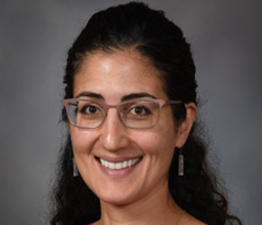 | Suzanna Attia, M.D., MScPH University of Kentucky Dr. Attia is an assistant professor of pediatrics at the University of Kentucky in the Division of Pediatric Gastroenterology, Hepatology, and Nutrition. Her research focuses on the prevention of maternal and childhood malnutrition. She is currently investigating the role of Moringa oleifera leaf powder on lactation and maternal and child nutritional outcomes. |
 | Maigen Bethea, Ph.D. University of Colorado Dr. Bethea is a research instructor at the University of Colorado Anschutz Medical Campus. She is currently interested in the impact of sex on the role of the gut-brain axis in response to weight loss surgery, as 80% of patients that receive bariatric surgery are women. Her long-term goal is to become an expert in the impact of sex on the role of the gut-brain-pancreas axis in regulating glucose and energy homeostasis. |
 | Audrey Blewer, Ph.D., M.P.H. Duke University Dr. Blewer is an epidemiologist and resuscitation scientist in the Department of Family Medicine and Community Health and the Department of Population Health Sciences within Duke University School of Medicine and Duke University School of Nursing. Dr. Blewer has published in several noteworthy journals, such as Circulation, Lancet Public Health, Circulation: Cardiovascular Quality and Outcomes, and Critical Care Medicine. She is recognized nationally and internationally in the field of resuscitation science. Dr. Blewer is contributing to the upcoming American Heart Association Guidelines Writing Group for Resuscitation Education, and she serves on the editorial board for the journal, Resuscitation Plus. Dr. Blewer works on interdisciplinary research projects at both Duke and Duke-NUS (National University of Singapore) Medical Center. |
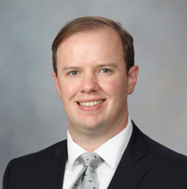 | Joshua Bock, Ph.D., M.S. Mayo Clinic Dr. Bock is an assistant professor studying the intersection of lifestyle patterns (diet, exercise, sleep) and cardiovascular health. His BIRCWH project is investigating sex differences in blood pressure control via the sympathetic nervous system in patients with obstructive sleep apnea. Dr. Bock is also interested in the neurophysiological effects of inorganic nitrate supplementation. |
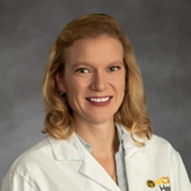 | Linda Burkett, M.D. Virginia Commonwealth University Dr. Burkett is a urogynecologist at the Virginia Commonwealth University located in Richmond, Virginia. As a surgeon-scientist and junior faculty, she is excited for the opportunities BIRCWH provides. She is studying neuroexcitation and outcomes of overactive bladder treatment, trying to increase the understanding of central neurologic control on bladder urgency. |
 | Tristesse Burton, Ph.D. University of Illinois at Chicago Dr. Burton is a University of Illinois Chicago (UIC) Bridge to Faculty Scholar and 2022–2023 Ford Foundation postdoctoral fellow. She earned her M.S.L. from Northwestern University Pritzker School of Law and her Ph.D. in pharmacognosy (developing medicines from plants and natural products) from UIC. Dr. Burton partnered with urban Indigenous women for her dissertation research that examined bioactives from American indigenous plants for improving women’s health. Previously, Dr. Burton was a postdoctoral fellow at the University of Nevada, Las Vegas and in the UIC/NIH T32 Precision Lifestyle Medicine and Translation Research (PREMIER) Fellow Program. Leveraging her pharmacognosy expertise, Dr. Burton’s current research broadly examines the intersect between people, plants, and culture by addressing perinatal cardiometabolic health disparities as risk factors for maternal mortality among Black and Indigenous women. As a BIRCWH Scholar, Dr. Burton is developing a plant-based dietary intervention to prevent gestational diabetes using transdisciplinary and collaborative bench to the community, precision nutrition, community-engaged, and patient-centered methods. Outside of research, she is dedicated to increasing minoritized individuals’ representation in science, technology, engineering, and mathematics (STEM) careers and higher education while improving the autonomy of minoritized women in their health care. She is a first-generation college and graduate student, a wife, and a mother to an energetic 5-year-old. |
 | Jessica Busler, Ph.D., M.P.S. Harvard University Dr. Busler is an instructor in the Department of Psychiatry at Brigham and Women’s Hospital – Harvard Medical School. Dr. Busler received her Ph.D. in psychology and a master’s of probability and statistics from Auburn University, Auburn, Alabama. During her Ph.D., she studied the physiological protective effects of positive emotions and the neurophysiological underpinnings of cognitive and emotion processes due to sleep restriction. For her postdoctoral research, Dr. Busler trained in clinical human neuroscience and neuroimaging methodologies, including magnetic resonance spectroscopy (MRS), functional MRS, and functional and structural magnetic resonance imaging. She is currently working on projects related to oxidative stress, sex hormones, and functional connectivity in mood disorders; the effects of diet on reward circuitry in the brain; and the relationships of gamma-aminobutyric acid (GABA) and glutamate with obesity-related endocrine and inflammatory markers through a sex-informed lens. Combining her statistical expertise and interest in optimizing methods, she is also developing harmonization techniques for combining MRS data across studies to answer novel questions related to women’s brain health, endocrine, and mood functioning. |
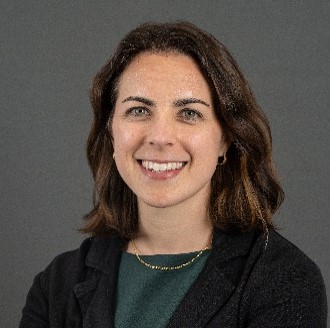 | Rebecca Campbell, Ph.D., M.S.P.H. University of Illinois at Chicago Dr. Campbell is an assistant professor of Maternal and Child Health Epidemiology in the University of Illinois Chicago School of Public Health, Division of Epidemiology and Biostatistics. She earned her M.S.P.H. and Ph.D. in international health with a focus in human nutrition at Johns Hopkins Bloomberg School of Public Health. Dr. Campbell then completed a postdoctoral fellowship at Mount Sinai School of Medicine in New York in pediatric environmental health, during which she conducted research on the effects of maternal prenatal psychosocial stress on child cognitive development using pregnancy cohort studies. Dr. Campbell’s experiences converge on pregnancy, nutrition, and the maternal-placental-fetal interface as critical for fetal development and the long-term health of the maternal-child dyad. Her current research aims to identify risk factors and mechanisms for fetal iron deficiency. As a BIRCWH Scholar, Dr. Campbell aims to develop a translational research program that bridges preclinical and epidemiologic research methods to understand the mechanisms by which maternal prenatal stress constrains fetal iron accrual and the role of fetal sex as a moderator. She seeks to translate these mechanistic insights into targets and approaches for interventions that will protect fetal iron accrual, improve child health and development, and promote health equity. |
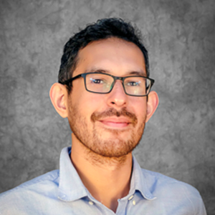 | Phillip Cantu, Ph.D. University of Texas Medical Branch Dr. Cantu is an assistant professor at the University of Texas Medical Branch who is primarily interested in the role of caregiving and caregivers in the health of older adults. He has published in high-impact social science journals and has used his time as a BIRCWH Scholar to expand his research network and apply for independent funding. |
 | Olivia Cardenas-Trowers, M.D. Mayo Clinic Dr. Cardenas-Trowers is a fellowship-trained urogynecologist at the Mayo Clinic in Jacksonville, Florida, who specializes in treating female pelvic floor disorders. Dr. Cardenas-Trowers is a senior associate consultant in the Department of Medical and Surgical Gynecology and an assistant professor of obstetrics and gynecology at the Mayo Clinic Alix School of Medicine. Dr. Cardenas-Trowers earned her medical degree from Meharry Medical College in Nashville, Tennessee. She completed her residency in obstetrics and gynecology at the University of Arizona in Tucson, Arizona, followed by a fellowship in female pelvic medicine and reconstructive surgery at the University of Louisville in Louisville, Kentucky. In addition to her clinical practice, Dr. Cardenas-Trowers is active in research and education. She has been awarded research funding to study the regenerative impact of extracellular vesicles on wound healing for pelvic organ prolapse surgery. Dr. Cardenas-Trowers has authored more than 20 peer-reviewed publications and textbook chapters. She is a national speaker and holds positions on several national committees, including the American Urogynecologic Society and the Society of Gynecologic Surgeons. |
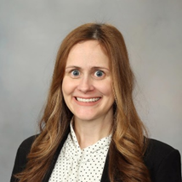 | Elizabeth Cathcart-Rake, M.D. Mayo Clinic Dr. Cathcart-Rake is a medical oncologist specializing in the treatment of breast cancer. Her research is focused on improving the disparities facing LGBTQIA+ people with or at risk for cancer. Dr. Cathcart-Rake has a particular focus on improving care for transgender and gender diverse individuals with breast cancer. In addition, Dr. Cathcart-Rake studies ways to prevent and treat the acute and long-term effects of cancer treatments in order to support the quality of life for cancer survivors. |
 | Binita Chakraborty, Ph.D. Duke University Dr. Chakraborty earned her Bachelor of Science and Master of Science in zoology from the University of Calcutta in 2005 and 2007, respectively. She obtained her Ph.D. from the University of Nebraska Medical Center in cancer research in 2015. She then moved to Duke University and completed her postdoctoral training in cancer biology in 2022. Currently, she works as a research scientist in the Department of Pharmacology and Cancer Biology, Duke University. Dr. Chakraborty’s research focuses on understanding how sex hormones influence the immune microenvironment during tumor progression and how the pharmacology of sex hormone receptors can be exploited to increase the efficacy of standard of care therapies in cancer. Her recent work has demonstrated that female hormone estrogens working through estrogen receptors (ER) influence the polarization of tumor-associated macrophages, which in turn influence CD8+ T cells’ activity. Pharmacological inhibition of the ER repolarizes macrophages toward an immunostimulatory state, increasing CD8+ T cells’ activity and the efficacy of checkpoint inhibitors. Dr. Chakraborty’s BIRCWH will extend that work and delve into the molecular mechanisms that underlie estrogen actions in the tumor immune microenvironment and the different aspects of the ER regulome that can be targeted to increase immunotherapy response across tumor types. |
 | Hui (Amy) Chen, M.D., M.A.S. University of California, Davis Dr. Chen is an assistant professor of gynecologic oncology. She treats gynecologic cancers, including ovarian, uterine, cervical, vulvar, and vaginal. Her research involves integrating complementary and alternative medical therapies with conventional cancer treatments. She is interested in improving the quality of life of patients with gynecologic malignancies. |
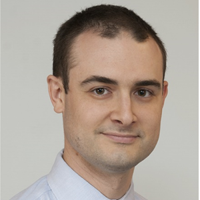 | David Combs, M.D., Ph.D. Harvard University Dr. Combs is a junior faculty member in the Obstetric Anesthesia Division at Brigham and Women’s Hospital (BWH). He spends 75% of his time on research activities supported by the BWH BIRCWH (K12) and the remainder of his time in clinical work focused on the obstetric and reproductive care of high-risk patients. Dr. Combs’ long-term goal is to become an independent physician-scientist focused on uterine physiology and pathophysiology in obstetric health and disease. His background in both basic science and clinical medicine makes him uniquely suited to succeed in this research area. |
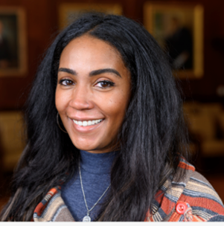 | Laneshia Conner, Ph.D. University of Kentucky Dr. Conner is an assistant professor in the College of Social Work at the University of Kentucky in Lexington, Kentucky. She serves on several committees at the college, university, and national levels. She earned her bachelor’s degree from the University of Kentucky, her master's degree from the University of Georgia, and her Ph.D. from the University of Louisville. She has received federal grant awards for her research and is developing her research lab to focus on health disparities experienced by older African Americans. |
 | Gaea Daniel, R.N., Ph.D. Emory University Dr. Daniel is an assistant professor of nursing at Emory University. Her program of research focuses on understanding the sociocultural and environmental influences that affect sexual health behaviors and outcomes. She is particularly interested in the sexual health outcomes of Black women that present as race-based disparities, including HIV/AIDS. Dr. Daniel devotes her time to diversity-related initiatives in her research and the nursing profession. She is also the co-editor of Taking Action: Top 10 Priorities to Promote Health Equity and Well-being in Nursing. Dr. Daniel is passionate about working with and in the community to serve others—she partners with SisterLove, Inc. to provide sexual health education and services on the Healthy Love Bus, a mobile sexual health clinic. |
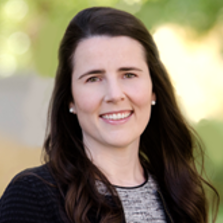 | Catherine Demers, Ph.D. University of Colorado Dr. Demers is an assistant professor and clinical psychologist at the University of Colorado, Anschutz Medical Campus. Dr. Demers received her Ph.D. in clinical psychology at Washington University in St. Louis. After her Ph.D., she completed a postdoctoral fellowship at the University of Colorado Anschutz Medical Campus and the University of Denver, and she received an F32 National Research Service Award (NRSA). Dr. Demers’ research focuses on understanding neurobiological pathways underlying the intergenerational transmission of maternal mental health. With the support of the BIRCWH program, she will investigate the association between maternal stress exposure and infant brain development. |
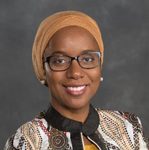 | Ana Diallo, Ph.D. Virginia Commonwealth University Dr. Diallo is an assistant professor at the Virginia Commonwealth University (VCU) School of Nursing and the Office of Institutional Equity, Effectiveness, and Success. Having joined VCU in 2018, Dr. Diallo has been serving as clinical faculty at the Richmond Health and Wellness Program, a community-based care coordination program. Dr. Diallo has been a clinical and translational postdoctoral fellow at the National Institute of Nursing Research. She graduated from VCU with a Bachelor of Science in nursing and a Bachelor of Arts in global health. Dr. Diallo then completed her Ph.D. in nursing and her Master of public health from the University of Connecticut. Her Ph.D. work focused on nutrition, primarily breastfeeding, and early identification of diarrheal diseases at the point-of-care. Her current research focus is to understand the interacting effects of nutritional behaviors and clinical and genomic data on dyslipidemia, with particular attention to how gene-diet interactions influence dyslipidemia and how to address the lack of representation of minority groups in nutrigenomic research. To achieve this goal, Dr. Diallo has conducted community-based nutrition studies and epidemiological analyses of large cohort studies. As a BIRCWH Scholar, she will investigate how sex-gender differences influence the effect of nutritional behaviors and social determinants of health on lipid and lipid sub-particle levels in cohorts of Black American adults. |
 | Margaret Mary Downey, Ph.D., M.S.W. Tulane University Dr. Downey is an assistant professor at Tulane University's School of Social Work, with a focus on the social and structural determinants of health inequities, particularly those in reproductive and maternal health. Her research interests include the role of medical social workers as street-level bureaucrats as well as structural competency, an emerging education paradigm that trains health professionals in understanding the relationships among race, class, the embodiment of health inequities at the patient level, and symptom expression. Dr. Downey’s current work uses institutional ethnographic methods to examine how maternal mortality review committees understand and make recommendations to address the social determinants of maternal death. She completed a bachelor’s degree in English literature at Temple University and a master’s in social work and a Ph.D. in social welfare from the University of California, Berkeley. Dr. Downey is also a former birth and abortion doula, having practiced in Philadelphia, PA. |
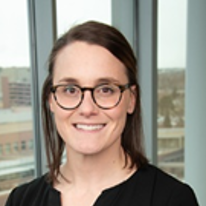 | Lyndsey DuBose, Ph.D. University of Colorado Dr. DuBose is an assistant professor in the Department of Medicine, Division of Geriatric Medicine at the University of Colorado Anschutz Medical Campus. She holds degrees in exercise science (B.S., University of Texas at Austin) and human physiology (M.S. and Ph.D., University of Iowa). Dr. DuBose’s current work uses translational approaches to investigate mechanisms underlying sex-specific risk factors (e.g., adverse outcomes of pregnancy, infertility, and menopause) for premature or accelerated vascular and cognitive aging in women. Dr. DuBose’s work is currently supported by a K12 BIRCWH and early career pilot awards from the Ludeman Family Center for Women’s Health and the Colorado Specialized Center of Research Excellence (SCORE) on Sex Differences program. |
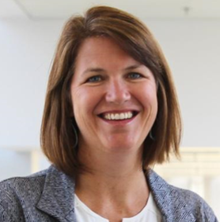 | Hartley Feld, Ph.D., M.S.N., R.N., PHCNS-BC University of Kentucky Dr. Feld is an associate professor at the University of Kentucky College of Nursing where she also serves as the chair of global affairs. She is American Nurses Credentialing Center (ANCC) board-certified as a public health clinical nurse specialist and a fellow in the Center for Inter-Professional Education. Dr. Feld also leads and promotes numerous global opportunities where she focuses on place-based well-being and health as well as service-learning in global health. She is an active member of the Perinatal Research and Wellness Center team and serves on the Lexington-Fayette County Board of Health. |
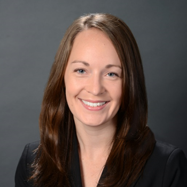 | Michelle Fullard, M.D., M.S.C.E. University of Colorado Dr. Fullard is an assistant professor of neurology at the University of Colorado. Dr. Fullard received her M.D. at Vanderbilt University School of Medicine. Following medical school, she completed neurology training at the University of Virginia and movement disorders training at the University of Pennsylvania. While at the University of Pennsylvania, Dr. Fullard obtained a Master of Science degree in clinical epidemiology. Her research focuses on gender disparities in outcomes and care for patients with Parkinson’s disease. |
 | Kelsey Gabel, Ph.D. University of Illinois at Chicago Dr. Gabel is an assistant professor in kinesiology and nutrition. She received her master’s and Ph.D. in human nutrition from the University of Illinois Chicago (UIC). Dr. Gabel has been studying intermittent fasting for almost a decade and has emerged as a leader in the field. Specifically, her research is focused on how intermittent fasting may mitigate weight gain and adiposity, adverse effects, and metabolic dysregulation during anti-tumor treatment for breast cancer. Additionally, she is interested in how different modalities of exercise, combined with diet, may improve cardiometabolic risk and cognitive decline in peri- and postmenopausal women. |
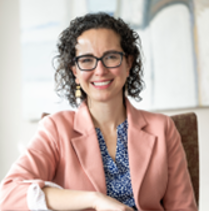 | Lara Gerassi, Ph.D., L.C.S.W. University of Wisconsin-Madison Dr. Gerassi is a licensed clinical social worker and an assistant professor at the Sandra Rosenbaum School of Social Work at the University of Wisconsin-Madison. |
 | Gloria Gerber, M.D. Johns Hopkins University Dr. Gerber is an assistant professor in the division of hematology at Johns Hopkins University and a physician scientist in classical hematology with a dedicated clinical and research focus on thromboinflammatory disorders during pregnancy. Dr. Gerber’s BIRCWH proposal employs a novel functional assay to study the role of complement in women with antiphospholipid syndrome and lupus during pregnancy. |
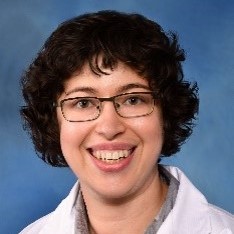 | Rachael Gordon, M.D., Ph.D. Magee-Womens Research Institute Dr. Gordon is an assistant professor at the University of Pittsburgh School of Medicine. She has a longstanding interest in the clinical and basic immunology underlying systemic autoimmune diseases. After completing her B.A. at the University of Pennsylvania, she pursued an M.D.-Ph.D. at the University of Pittsburgh School of Medicine under the mentorship of Mark Shlomchik, M.D., Ph.D. Over the past decade and a half, Dr. Gordon has spearheaded both human and murine studies aimed at understanding how dysregulation of the immune system contributes to the pathogenesis of rheumatoid arthritis, systemic lupus erythematosus, and, most recently, Sjogren’s Disease (SjD). Early in her rheumatology training, it became evident that the immunology of SjD is both captivating and understudied. There are no FDA-approved disease-modifying treatments for SjD, a female-predominant disease. To address this critical need, Dr. Gordon is building a Sjogren’s Center and a translational research program at the University of Pittsburgh, including a SjD longitudinal registry and biospecimen repository. The first arm of her research program will explore the role of IL-12 in SjD pathogenesis. |
 | Kelsey Hagan, Ph.D. Virginia Commonwealth University Dr. Hagan is a clinical psychologist and an assistant professor of psychiatry at Virginia Commonwealth University (VCU). She completed her Ph.D. in clinical psychology (with a minor in statistics) at the University of Kansas and her doctoral psychology internship at Stanford Children's Hospital. She went on to complete two research postdoctoral fellowships in eating disorders at Stanford and Columbia. Dr. Hagan's research program is dedicated to improving the lives of people with eating disorders, which predominately affect girls and women, through mechanistic research that informs translational therapeutics. She aims to delineate the neurobiological and psychosocial mechanisms of these pernicious disorders using sophisticated and diverse methods, including task-based functional magnetic resonance imaging (fMRI), neuromelanin-sensitive MRI, neurocognitive tasks, clinical assessments, and ecological momentary assessment. Currently, she is spearheading projects that interrogate the neurocomputational bases of risky decision-making in girls and women with bulimia nervosa. She is also the co-director of the outpatient eating disorders psychotherapy clinic at VCU Psychiatry. |
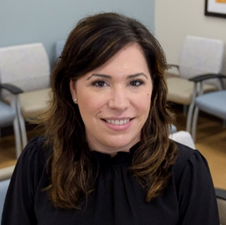 | Gabriela Halder, M.D., M.P.H. University of Texas Medical Branch Dr. Halder is a urogynecologist who aspires to be an independently funded clinician scientist. She wears multiple hats, including clinician, teacher, surgeon, and researcher. Her varied research interests center on the patient experience. In Dr. Halder’s off time, she enjoys spending time with her husband and toddler, and her hobbies include traveling, cooking, and gardening. |
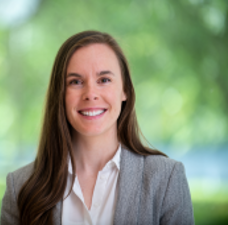 | Anita Hargrave, M.D., M.A.S. University of California, San Francisco - Kaiser Permanente Northern California Division of Research Dr. Hargrave is an assistant professor at the University of California, San Francisco and primary care physician who is committed to patient-oriented research aimed at improving health outcomes for people who have experienced trauma through identifying and addressing gaps in care using implementation science strategies. She is currently a BIRCWH K12 Scholar evaluating the impact of trauma on treatment patterns and prevalence of cardiovascular disease and cancer prevention among women veterans. The findings generated from this study will identify primary performance gaps in management of disease risk factors for women and the factors that predict treatment and adherence to evidence-based interventions. The information will be used for trauma-informed care practices to create, adapt, and evaluate future health programs aimed at decreasing morbidity and premature mortality among women. |
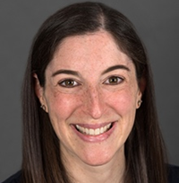 | Rebecca Harris, M.D., Ph.D. Harvard University Dr. Harris is a pediatric endocrinologist at Boston Children's Hospital, an instructor of pediatrics at Harvard Medical School, and a visiting scientist in the laboratory of David Page, M.D., at the Whitehead Institute affiliated with the Massachusetts Institute of Technology. |
 | Hunter Holt, M.D., M.A.S. University of Illinois at Chicago Dr. Holt is a board-certified family medicine physician and assistant professor in the University of Illinois Chicago (UIC) Department of Family and Community Medicine. His research is focused on implementing solutions that improve patient experiences and health outcomes related to reproductive health and cervical cancer prevention. In medical school at Rush University, Dr. Holt traveled to China as an NIH Fogarty Global Health Fellow to research cervical cancer prevention in China. Working with the Cancer Institute of China, he investigated cervical cancer screening in Chinese migrant workers and Chinese women who were postmenopausal. As a family medicine resident at UIC, he was part of the Global Health Track working in Senegal to implement sustainable solutions for cervical cancer prevention in rural Senegal. As a Primary Care Research Fellow at the University of California, San Francisco, Dr. Holt completed his master’s degree in clinical and epidemiological research and worked to understand the reasons behind disparities in cervical cancer incidence and mortality. Currently, he is working to find solutions to reduce cervical cancer disparities and promote health equity in Chicago and nationally. |
 | Christine Hsu, Ph.D. University of Texas Medical Branch Dr. Hsu is a postdoctoral fellow at the University of Texas Medical Branch at Galveston. Dr. Hsu received her Ph.D. in epidemiology from the University of North Carolina at Chapel Hill where she specialized in pharmacoepidemiology. Dr. Hsu’s research centers around cancer prevention, cancer care and outcomes, and medication use and safety. Dr. Hsu’s research expertise is in the application of epidemiologic methods and study designs to administrative and registry-based data (e.g., Surveillance, Epidemiology, and End Results (SEER)-Medicare, Medicare, private insurance claims data, etc.), and her current research focuses on the prevention and treatment of human papillomavirus (HPV)-related cancers. |
 | Maria (Daniela) Hurtado Andrade, M.D., Ph.D. Mayo Clinic Dr. Hurtado Andrade is an assistant professor of medicine at Mayo Clinic in Jacksonville, Florida. She is from Ecuador where she completed her medical degree at the Pontifical Catholic University. Her curiosity about the causes of obesity led her to pursue doctorate-level training in physiology and pharmacology at the University of Florida. Her research focused on the brain’s regulation of food intake. After her doctoral training, she completed internal medicine training at the University of Pittsburgh Medical Center in Pittsburgh, PA, and endocrinology fellowship specialty training at Mayo Clinic in Rochester, MN. She joined Mayo Clinic Staff in 2019. |
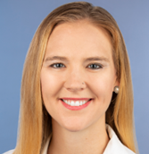 | Angela Jarman, M.D., M.P.H. University of California, Davis Dr. Jarman is an assistant professor and the director of Sex and Gender in Emergency Medicine at University of California, Davis. She joined the faculty there after she completed a two-year fellowship in sex and gender in emergency medicine at Brown University where she also earned a Master of Public Health degree. Dr. Jarman is a North Carolina native and majored in gender studies at Duke University before attending medical school at the University of Kentucky. She trained in emergency medicine at the University of Utah in Salt Lake City. Dr. Jarman is currently a BIRCWH Scholar; her research interests include sex differences in venous thromboembolism, health disparities, LGBTQ+ health, and bias in medicine and leadership. |
 | Brittany Jenkins-Lord, Ph.D., M.S., M.P.H. Johns Hopkins University Dr. Jenkins-Lord is an assistant professor in the Department of Biochemistry and Molecular Biology at the Bloomberg School of Public Health at Johns Hopkins University. Her research efforts provide insights into understanding the molecular basis of breast and prostate cancer disparities, including how genetic, social, and environmental risk factors work together to alter tumor biology and affect cancer mortality for individuals of African descent and other minoritized populations. Dr. Jenkins-Lord was previously a postdoctoral fellow in the Cancer Prevention Fellowship Program where she conducted research at NIH’s Division of Cancer Epidemiology and Genetics and Center for Cancer Research. Here, she performed similar research on population-level differences in cancer biology and tumor progression that leads to the more aggressive cancer subtypes experienced by minoritized populations. Dr. Jenkins-Lord also obtained her Master of Public Health from Johns Hopkins University with a concentration in epidemiology and biostatistics and a Master of Science in biotechnology from Claflin University. Her Ph.D. work at the University of Georgia investigated the functional role of a chemokine receptor in the regulation of tumor immune response across diverse populations. Dr. Jenkins-Lord’s research and efforts are a prime example of how inclusion of diverse ethnic groups can enrich study designs and broaden the impact of study results to underserved populations. |
 | JungHee Kang, Ph.D., M.P.H., R.N. University of Kentucky Dr. Kang is an assistant professor in the College of Nursing, University of Kentucky. Dr. Kang is working in the Research and Intervention for Cardiovascular Health (RICH) program and Cancer Prevention and Control Research Program to reduce cardiovascular disease and cancer disparities in Kentucky. |
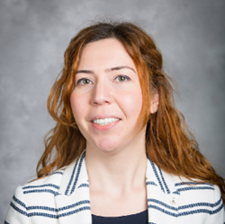 | Seyma Katrinli, Ph.D. Emory University Dr. Katrinli is an instructor in the Department of Gynecology and Obstetrics and an investigator within the Grady Trauma Project. Dr. Katrinli received her Ph.D. in molecular biology and genetics from Istanbul Technical University. In 2018, she received a mentored research grant from The Scientific and Technological Research Council of Turkey and started her postdoctoral fellowship at Emory University to investigate the role of the immune system in post-traumatic stress disorder (PTSD). Dr. Katrinli studies the role of genetic, epigenetic, and sex-specific mechanisms in the development and severity of stress-related psychiatric disorders across the lifespan. She uses multi-omics approaches to develop a more comprehensive understanding of PTSD and related psychiatric symptomatology. She is the lead analyst of the Psychiatric Genomics Consortium-PTSD Epigenetics Workgroup and develops pipelines for the quality control and analysis of DNA methylation data. During her BIRCWH award, Dr. Katrinli will receive new training and support to extend her research on PTSD to borderline personality disorder (BPD), specifically to investigate sex-related factors that may exacerbate BPD symptoms in females, including fluctuations in endogenous and exogenous ovarian hormones. |
 | Katrina Knight, Ph.D. Magee-Womens Research Institute A native of Columbia, SC, Dr. Knight received a Ph.D. (2017) in bioengineering from the University of Pittsburgh (Pittsburgh, PA) and a B.S. (2009) in biochemistry from Claflin University (Orangeburg, SC), a Historically Black College and University. Prior to joining the bioengineering faculty in May 2021 as an assistant professor and a BIRCWH Scholar, Dr. Knight was a postdoctoral fellow in the Magee-Womens Research Institute and Foundation Postdoctoral Fellowship Program. Throughout her graduate and post-graduate matriculation, Dr. Knight was trained by leading experts in the urogynecology field, Steven Abramowitch, Ph.D., (bioengineer) and Pamela Moalli, M.D., Ph.D., (urogynecologist, scientist), whom she now refers to as colleagues. Dr. Knight considers herself to be a translational biomedical engineer. She has extensive training in biomechanics (e.g., mechanical testing of soft tissues and synthetic meshes/slings), computational modeling, and device design and development. Dr. Knight was also rigorously trained in the biological aspects of assessing the host response to devices and in animal research/surgery. Ultimately, Dr. Knight’s research aims to improve the lives of women with pelvic floor disorders through the development of novel and innovative treatments while concomitantly increasing the number of minorities pursuing an education and/or career in science, technology, engineering, and mathematics (STEM). |
 | Amy LeClair, Ph.D., M.Phil. Tufts University Dr. LeClair is an assistant professor in the Center for Health Equity Research in the Department of Medicine at Tufts Medical Center and Tufts University's Graduate School for Biomedical Sciences. Dr. LeClair is a medical sociologist whose work employs qualitative and mixed methods research designs, implementation science, and stakeholder and community engagement to advance health equity for minoritized populations. |
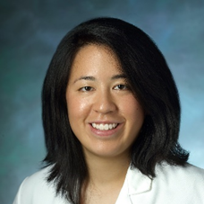 | Victoria Lee, M.D., FARS University of Illinois at Chicago Dr. Lee is an associate professor in the Department of Otolaryngology – Head and Neck Surgery at the University of Illinois Chicago. She is a board-certified otolaryngologist and fellowship-trained sinus and skull base surgeon with a tertiary academic practice focused on treating patients with sinonasal pathology. Dr. Lee is highly experienced in rhinologic outcomes research, completing a dedicated T32-funded research training year during residency. Her current research efforts are focused on health disparities, exploring the effects of social (e.g., socioeconomic status, race/ethnicity, and sex) and physical (e.g., environment) determinants of health on sinonasal disease, and she has received peer-reviewed grant funding to support this work. Epidemiological data on sex-specific differences, in particular for sinonasal conditions, are limited. As a BIRCWH Scholar, the overarching goal of her research is to explore sex-specific differences in patients with inflammatory sinonasal conditions at the epidemiological level. She seeks to characterize sex-specific differences in clinical presentation, disease severity, treatment choice/decision-making, and outcome improvement in patients with sinonasal disease. |
 | Laurel Legenza, Pharm.D., Ph.D. University of Wisconsin-Madison Dr. Legenza is a University of Wisconsin (UW) BIRCWH postdoctoral fellow in the School of Pharmacy, Sonderegger Research Center for Improved Medication Outcomes at the University of Wisconsin-Madison (UW-Madison). Dr. Legenza received her PharmD from the UW-Madison School of Pharmacy and her Ph.D. in pharmacy from the University of the Western Cape. She completed the inaugural UW-Madison Comparative Health Systems Global Pharmacy Fellowship. She recently completed a TL1 postdoctoral fellowship with the UW Institute for Clinical and Translational Research. Dr. Legenza is passionate about improving patient outcomes, specifically addressing antimicrobial resistance with action-oriented information. Her UW BIRCWH research aims to quantify sex- and gender-based differences in antibiotic resistance and antibiotic prescribing as a means to advance women’s health. Dr. Legenza’s research strives to ultimately inform treatment protocols and clinical decision support tools for optimized antibiotic treatment. |
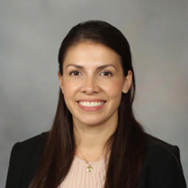 | Angie Lobo Romero, M.D. University of Minnesota Dr. Lobo is a senior fellow in the Division of Nephrology and Hypertension in the Department of Internal Medicine at University of Minnesota. She received her Doctor of Medicine from Universidad Latina de Costa Rica and completed her residency in internal medicine at Abbott Northwestern in Minneapolis, MN. Dr. Lobo trained for two additional years in women’s health at the Mayo Clinic in Rochester, MN, and she has completed all credits for the master’s degree program in clinical research and translational science. Dr. Lobo’s research interests include the study of kidney disease in women, particularly kidney diseases caused by autoimmune disease. She helped develop the Minneapolis Heart Institute Spontaneous Coronary Artery Dissection (SCAD) Research Program and was an active research member in the Mayo Clinic SCAD Research Program. Professional highlights include being selected as an American Society of Nephrology Fellow Intern in 2023 for the Workforce Task Committee and being an active member of the women’s health work group within the Division of Nephrology. |
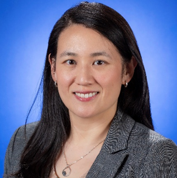 | Victoria Lyo, M.D., M.T.M., FACS University of California, Davis Dr. Lyo is an associate professor of surgery at the University of California, Davis in Sacramento, CA. She is a bariatric and minimally-invasive general surgeon, performing translational research focusing on bariatric surgery outcomes. She did her medicine and surgery training at the University of California, San Francisco and her fellowship at the Oregon Health & Science University. She enjoys mentoring residents and students in research, and she has obtained extramural funding through a Society of American Gastrointestinal and Endoscopic Surgeons research grant. Dr. Lyo is in her fourth year on faculty, and she is building her career as an academic surgeon-scientist. |
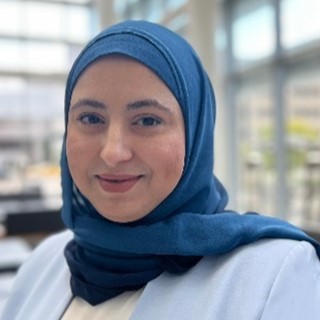 | Hend Mansoor, Ph.D., PharmD, M.S. University of Kentucky Dr. Mansoor is a pharmacoepidemiologist and health services researcher whose research focuses on improving medication adherence and risk factor control among patients with cardiovascular disease and stroke, with a focus on women and social determinants of health vulnerabilities. Dr. Mansoor applies advanced predictive analytics to identify patients at a high risk for medication nonadherence, recurrent cardiovascular events, and poor outcomes. She is also involved in designing targeted interventions to improve medication adherence and outcomes among these high-risk individuals. |
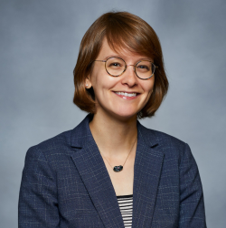 | Susanna Mitro, Ph.D., M.P.H. University of California, San Francisco - Kaiser Permanente Northern California Division of Research Dr. Mitro is an epidemiologist who researches gynecologic health as well as maternal health in pregnancy and postpartum. |
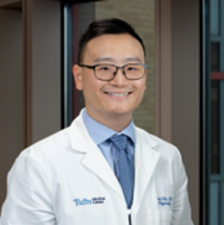 | Tsung Mou, M.D. Tufts University Dr. Mou is an attending urogynecologist and an assistant professor in the Department of Obstetrics and Gynecology at Tufts Medical Center. He completed his fellowship in female pelvic medicine and reconstructive surgery at Northwestern University in 2022 after completing his obstetrics and gynecology residency at New York Presbyterian – Weill Cornell Medical Center. His research focus is on inequity in patient care experience, especially amongst the diverse Asian American and aging populations. |
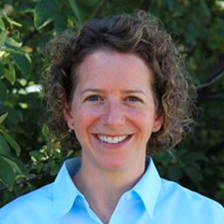 | Kathleen Mullen, D.V.M., M.S., DACVIM University of Colorado Dr. Mullen joined the Translational and Integrative Sciences Laboratory at the University of Colorado Anschutz Medical Campus as a postdoctoral fellow (principal investigator: Melissa Haendel, Ph.D., FACMI) in May 2022 to focus on integrating veterinary and human medical data to improve health outcomes by revealing shared disease patterns. Dr. Mullen completed her Doctor of veterinary medicine and residency training in large animal internal medicine at Cornell University. Dr. Mullen’s residency research project was funded through an NIH R21. Her team identified an outbreak of dysphagia among neonatal foals on a farm with contaminated water that was located adjacent to an unconventional natural gas development site. Because companion animals (dogs, cats, and horses) and humans have similar health problems, she became interested in cross-species comparisons of diseases in people and animals living together. She recognized the need for data integration and cross-sectoral dissemination within care settings to understand who is bearing the health and economic costs of disease. In addition to her research focus, Dr. Mullen continues her equine internal medicine practice at an equine specialty hospital in Littleton, Colorado. |
 | Subasri Narasimhan, Ph.D., M.P.H. Emory University Dr. Narasimhan is an assistant professor in the Hubert Department of Global Health at Emory University and affiliate faculty at the Center for Reproductive Health Research in the Southeast. As a public health social scientist, she has broad specialties in sexual and reproductive health, maternal and child health, and intimate partner violence in Sub-Saharan Africa, Asia, and the Southeastern United States contexts. Currently, Dr. Narasimhan is a co-principal investigator on several studies focusing on reproductive health, birth care and support, and abortion, including the Abortion Bans Project that studies the state-level legislative debate on six-week abortion bans, for which she received the 2019 Society of Family Planning Emerging Scholar Award. She is involved with PROVIDA, which examines the provision of medication abortion implementation via telehealth, and with a pilot study focused on the impact of COVID-19 on experiences of prenatal care, birth support, and delivery for first-time parents. Dr. Narasimhan is also committed to teaching and mentoring trainees and graduate students; was a finalist for the 2022 Faculty of Impact Award from the Women of Color Initiative Atlanta; and was the recipient of the 2023 Emory Women of Excellence Award for Mentorship. |
 | Junia Nogueira de Brito, Ph.D., M.P.H., M.B.A. University of Minnesota Dr. de Brito is an assistant professor in the Department of Family Medicine and Community Health at the University of Minnesota Medical School and a BIRCWH Scholar. Dr. de Brito is a social-behavioral epidemiologist with interdisciplinary training in nutrition and dietetics, maternal and child health, and quantitative and qualitative research methods. Her research is focused on investigating the interplay between structural and social determinants of health and health-related behaviors that contributes to obesity and cardiometabolic health disparities among children of racialized and other marginalized groups. |
 | Amy Noser, Ph.D. University of Minnesota Dr. Noser is an assistant professor in the Department of Family Medicine and Community Health at the University of Minnesota Medical School. Dr. Noser is both a researcher and behavioral medicine clinician. She is a clinical child psychologist who specializes in integrated behavioral care and helping children and their families address treatment barriers. Her research focuses on adherence and self-management behaviors and the use of digital tools to assess and intervene in these behaviors in youth with chronic conditions and their families. She is particularly interested in understanding the roles of sex and racial/ethnic differences in treatment preferences and needs. |
 | Serena Michelle Ogunwole, M.D., Ph.D. Johns Hopkins University Dr. Ogunwole is an assistant professor of medicine in the Division of General Internal Medicine at The Johns Hopkins University School of Medicine. She received her B.A. in economics from Emory University, her M.D. from the University of Texas Health Science Center at San Antonio, and her Ph.D. from Johns Hopkins Bloomberg School of Public Health. She has advanced training in quality improvement and patient safety, with specific expertise in enhancing equity in quality improvement and patient safety education and implementation. Dr. Ogunwole is a health disparities researcher and a social epidemiologist focused on reducing racial disparities in maternal health outcomes among Black women. She is triple board-certified in internal medicine, obesity medicine, and lifestyle medicine. Her clinical and research agendas are focused on novel clinical models for postpartum women with obesity, postpartum chronic disease, and long-term health outcomes related to complications of pregnancy, particularly for women with gestational diabetes, hypertensive disorders of pregnancy, or excessive gestational weight gain. She is also interested in addressing structural inequities that perpetuate obesity-related pregnancy disparities. She envisions a world where Black women can experience the sacredness of their births and can safely enter pregnancy and emerge whole and well. |
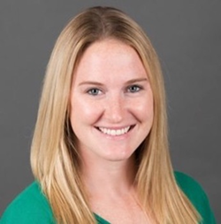 | Jessie Oldham, Ph.D. Virginia Commonwealth University Dr. Oldham is an assistant professor in the Department of Physical Medicine and Rehabilitation at the Virginia Commonwealth University (VCU) School of Medicine and co-director of the Research in Athlete and Military Health Science Lab. She is also affiliate faculty in the VCU Institute for Women’s Health and co-chair of the Institute for Women’s Health Female Athlete Research Development Group. In addition to her academic duties, Dr. Oldham is on the executive board of the Engagement, Research, and Learning for Young Traumatic Brain Injury Researchers organization and an associate board member with Sportable, an adaptive sports organization. |
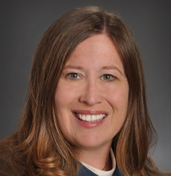 | Krisjon Olson, Ph.D. University of Wisconsin-Madison Dr. Olson is a medical anthropologist who trained in ethnographic methods and studies the connections between families, premature death, and disability to understand how they contribute to broad patterns of risk over the life course. Within the study of childhood, Dr. Olson specializes in the culture and structure of pediatric medicine; health care delivery and utilization; the relationship of biotechnologies to ethics; the development of expertise in rare events; and high-risk environments. She draws on participant-observation and fieldwork conducted in four pediatric cardiac intensive care units focused on the use of advanced therapies (e.g., extracorporeal membrane oxygenation, ventricular assist devices, heart transplant). She has paid particular attention to the changing use of sex as a biological variable in critical care and examined how both sex and gender norms affect health care delivery. Dr. Olson’s goal is to improve outcomes research so that families facing treatment decisions can make choices aligned to their preferences and values, centering the child. She brings essential theoretical insights from the social sciences needed to address inequalities in outcomes, longevity of survivors, and their transition to adulthood. |
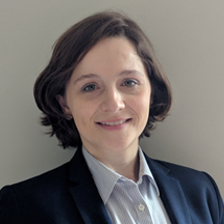 | Theodora Pappa, M.D., Ph.D. Harvard University Dr. Pappa is an instructor in medicine at Harvard Medical School and an associate physician at Brigham and Women's Hospital and Dana-Farber Cancer Institute. Dr. Pappa is an onco-endocrinologist with a thyroid cancer-focused clinical practice and a translational researcher on thyroid cancer genomics. |
 | Michelle Patch, Ph.D., M.S.N., M.S., APRN-CNS, ACNS-BC, AFN-C, DF-AFN, FAAN Johns Hopkins University Dr. Patch is an assistant professor in the Johns Hopkins School of Nursing. She is board-certified as an adult health clinical nurse specialist and an advanced forensic nurse. Dr. Patch’s research focuses on health care responses to intimate partner violence and assault-related mechanisms, including strangulation and head trauma. Her K12 BIRCWH study examines intimate partner violence-related brain injury biomarkers and symptomatology over time for women seeking emergency care. |
 | Erin Peacock, Ph.D., M.P.H. Tulane University Dr. Peacock is an assistant professor in the Center for Health Outcomes, Implementation, and Community-Engaged Science (CHOICES) at the Tulane University School of Medicine. Dr. Peacock received her Ph.D. in global health systems and development from the Tulane University School of Public Health and Tropical Medicine. Her research focuses on the implementation of evidence-based interventions that account for sex-specific barriers and preferences to promote cardiovascular health in primary care settings. Dr. Peacock is a co-investigator on NIH-funded research studies, including the Implementation of Multi-faceted Patient-centered Treatment Strategies for Intensive Blood Pressure Control (IMPACTS) study that aims to improve blood pressure control among patients with a low income or who live in rural areas of federally qualified health centers in the Gulf South, and the Louisiana Community Engagement Research Alliance (LA-CEAL), which supports academic-community-public health-practice partnerships to address health disparities in Louisiana. |
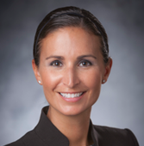 | Jennifer Plichta, M.D., M.S., FACS Duke University Dr. Plichta is an associate professor of surgery and population health sciences at Duke University. She joined Duke in 2016 and currently serves as the director of the Breast Risk Assessment Clinic in the Duke Cancer Institute where she cares for patients with breast cancer, benign breast problems, and those with an increased risk of breast cancer. She also serves as the co-director for the Clinical Cancer Genetics Program. Her clinical interests include establishing routine breast cancer risk assessment for women and creating personalized management strategies for those found to be “high risk.” Dr. Plichta received her medical degree from Indiana University School of Medicine and completed her general surgery residency at the Loyola University Medical Center. She then completed a fellowship in breast surgical oncology at Massachusetts General Hospital, Brigham and Women’s Hospital, and the Dana Farber Cancer Institute. |
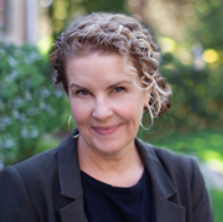 | Laura Prichett, Ph.D., M.H.S. Johns Hopkins University Dr. Prichett is an assistant professor in the Department of Pediatrics and a faculty lead with the Biostatistics, Epidemiology and Data Management (BEAD) Core at the Johns Hopkins University School of Medicine. She earned her Ph.D. and M.H.S. from the Johns Hopkins Bloomberg School of Public Health in the Department of Population and Family Health Sciences. Dr. Prichett’s primary research focus is using clinical data to better understand gender and racial disparities in adolescent mental health services utilization, especially because this may affect suicide prevention efforts. |
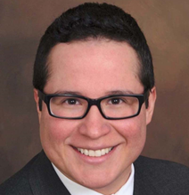 | Sebastian Ramos, M.D. Tufts University Dr. Ramos is an assistant professor of maternal fetal medicine in the Division of Obstetrics and Gynecology at Tufts Medical Center. He attended medical school at the University of Massachusetts Chan School of Medicine and completed his obstetrics and gynecology residency and maternal fetal medicine fellowship at the Warren Alpert Medical School of Brown University/Women and Infants Hospital. Dr. Ramos joined Tufts Medical Center in 2022 as a maternal fetal medicine physician, an assistant professor of maternal fetal medicine, and an associate principal investigator in the Mother Infant Research Institute. His BIRCWH research project focuses on systemic racism and adverse maternal, neonatal, and infant outcomes. His other research interests include prediction models in obstetrics, gestational diabetes outcomes by race and ethnicity, and fetal growth restriction management. |
 | Mary Roberts Davis, Ph.D., R.N., M.P.H. Oregon Health & Science University Dr. Roberts Davis is an assistant professor in the School of Nursing at Oregon Health & Science University. Dr. Roberts Davis is a biobehavioral researcher specializing in sex differences and female-specific cardiovascular disease (CVD), with a unique focus on reproductive system history related to risk and diagnosis of CVD. Her current research study is examining symptoms and health care utilization prior to a diagnosis of heart failure. |
 | Bethany Samuelson Bannow, M.D., M.C.R. Oregon Health & Science University Dr. Samuelson Bannow is an associate professor of medicine at Oregon Health & Science University. She is passionate about improving hematologic research and clinical care, particularly for female-identifying individuals and those with the potential to menstruate or become pregnant. She believes achieving this mission requires success in four equally important areas: 1) establishing true interdisciplinary teams, from basic scientists to clinicians to social scientists and public health experts, 2) improving the well-being and leadership potential of a diverse workforce of physicians and researchers, 3) increasing knowledge about the role of sex as a biological variable and 4) decreasing stigma around aspects of female reproductive health, such as menstruation and pregnancy. |
 | Ana Serezani, Ph.D., M.S. Vanderbilt University Dr. Serezani is an assistant professor at Vanderbilt University Medical Center. She studies immune regulation of chronic lung diseases. |
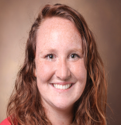 | Megan Shuey, Ph.D., M.S. Vanderbilt University Dr. Shuey is a research instructor in the Division of Genetic Medicine. As a trained pharmacologist and evolutionary geneticist, Dr. Shuey has a diverse research background, including phylogenomic reconstruction, assay development, electronic health record-based study design, and clinical evaluation of medication response. Research in Dr. Shuey's laboratory focuses on developing approaches to advance the clinical study of complex diseases. Research areas include the incorporation of genetic tools and publicly available resources to identify potential novel drug-repurposing targets, longitudinal data analyses to predict disease and adverse outcome risks in diverse populations, and the evaluation of medication exposure in at-risk populations to improve prescribing practice and preventative follow-up. To accomplish these goals, Dr. Shuey actively participates in various large consortia (NIH's polygenic risk methods in diverse populations 'PRIMED' and the Host Genomics Initiative) and has established collaborations across various universities and electronic health record resources. |
 | Shannon Sullivan, Ph.D., M.P.H., M.S. University of Minnesota Dr. Sullivan is an assistant professor of environmental epidemiology, with a strong background in analytical and organic chemistry, biomarker research, and molecular epidemiology. Dr. Sullivan's research focuses on understanding the intricate relationship between environmental exposures (with a special interest in metals and tobacco exposure), genetics, and their combined impact on the biological mechanisms contributing to human diseases. |
 | Deanne Tibbitts, Ph.D., M.C.R. Oregon Health & Science University Dr. Tibbitts is a research assistant professor in the Division of Oncological Sciences at Oregon Health & Science University (OHSU) where she studies how sex- and gender-based factors influence cancer-related health outcomes during and after treatment. A native of Atlanta, Dr. Tibbitts obtained her bachelor's degree in genetics and cellular biology from the University of Georgia and her Ph.D. in molecular and medical genetics at OHSU, where she studied molecular mechanisms of leukemia development and targeted cancer therapeutics. Dr. Tibbitts completed an NIH-funded clinical research fellowship in complementary and integrative health at the National University of Natural Medicine before returning to OHSU to pursue a postdoctoral fellowship in cancer survivorship. As a BIRCWH Scholar, Dr. Tibbitts is conducting a prospective study of immune-related adverse events during cancer immunotherapy. This study will identify sex- and gender-based differences in symptom profiles and potential biological and clinical mechanisms to explain sex and gender differences in treatment-related symptoms. Dr. Tibbitts’s work also integrates passive measurement technology to explore the impact of cancer treatment on functioning during daily life. The goal of her work is to improve quality of life for women by better understanding their unique symptom biology in response to cancer treatment. |
 | Cirila Estela Vasquez Guzman, Ph.D., M.S.R. Oregon Health & Science University Dr. Vasquez Guzman is an assistant professor in the Department of Family Medicine at Oregon Health & Science University (OHSU). Dr. Guzman trained at the University of New Mexico where she specialized in medical sociology, race, and ethnicity. Her involvement with the Robert Wood Johnson Foundation (RWJF) Center for Health Policy, the Satcher Health Leadership Institute (SHLI), and the State Priorities Partnership (SPP) has provided an interdisciplinary training influence on her multidimensional understanding of racial/ethnic health and health care disparities. Dr. Guzman has specific interests in social-cultural-structural-humanistic curriculum for medical students and residents and the investigation of inequities in medicine, health, and health delivery among Native American and Latinx immigrant communities. She utilizes a range of qualitative methods, including interviews, focus groups, and case study data. As a former KL2 and current BIRCWH Scholar, along with the support from the OHSU Center for Women’s Health Julie Stott Research Fund for Women’s Health, she is investigating the unique lived experiences of middle to older age Latinas with cervical cancer. As a first-generation, Latina, 1.5 immigrant indigenous scholar, she aims to bridge the gap between theory and practice from an equity and inclusion perspective, because we all win when we have a compassionate, representative, and humanistic health care system. |
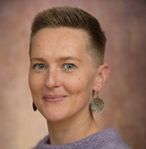 | Dovile Vilda, Ph.D., M.Sc. Tulane University Dr. Vilda is an assistant professor in the Department of Social, Behavioral, and Population Sciences at the Tulane School of Public Health and Tropical Medicine. She received her Ph.D. in social policy from Trinity College Dublin (Ireland) and completed a postdoctoral fellowship in social epidemiology at the Mary Amelia Center for Women’s Health Equity Research (Tulane University). Dr. Vilda’s BIRCWH project investigates the impact of infertility treatment on cardiovascular complications during pregnancy, childbirth, and postpartum. In addition, she is interested in sexual orientation-related disparities in pregnancy and birth outcomes. Her other research collaborations involve examining the role of social determinants and state-level policies in contributing to the higher rates of maternal and infant mortality in the United States and the societal and policy factors more broadly contributing to maternal and child health. |
 | Lauren Wareham, Ph.D. Vanderbilt University Dr. Wareham received her Ph.D. from the University of Sheffield, UK in biochemistry and microbiology. She completed her first postdoctoral fellowship at Harvard Medical School in ophthalmology, followed by a second postdoctoral fellowship in ophthalmology and visual sciences at Vanderbilt University Medical Center, Nashville. In 2020, Dr. Wareham became junior faculty at Vanderbilt University Medical Center and started her independent research program. In 2023, Dr. Wareham was awarded a K12 BIRCWH award. |
 | Charity Watkins, Ph.D., M.S.W., LCSW-A Duke University Dr. Watkins, a tenure-track assistant professor in the Department of Social Work at North Carolina Central University and a Duke-North Carolina Central University BIRCWH Scholar, holds a B.A. in sociology and an M.S.W. and Ph.D. in social work from the University of North Carolina at Chapel Hill. Her research, deeply influenced by her personal experience with peripartum cardiomyopathy, focuses on how social work can both interrupt racial inequities in the evaluation, diagnosis, and treatment of cardiac-related severe maternal morbidity and create critical social supports for Black women after experiencing these life-threatening conditions. Dr. Watkins seeks to ensure that her research demonstrates the value of personal experience, community-rooted solutions, and interprofessional practice by serving as an expert consultant and advisor for multiple national grant-funded research projects, advocating for women's heart health policy as a WomenHeart Champion with the National Coalition for Women with Heart Disease, and contributing to communities as the board of directors chair for Equity Before Birth, a Durham-based nonprofit organization that addresses gaps in access to supports and resources critical for healthy maternal and infant outcomes. |
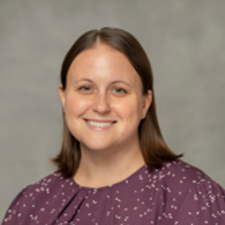 | Mary Whipple, Ph.D., R.N. University of Minnesota Dr. Whipple is an assistant professor at the University of Minnesota School of Nursing and a BIRCWH K12 Scholar. Dr. Whipple's research focuses on the cardiovascular effects of sedentary behavior and physical activity, with a particular focus on older adults with type 2 diabetes and peripheral artery disease. |
 | Meagan Whisenant, Ph.D., R.N., M.S.N., FNP-BC University of Texas Medical Branch Dr. Whisenant is an assistant professor in the Department of Behavioral Science at the University of Texas MD Anderson Cancer Center and a Cancer Prevention and Research Institute of Texas Scholar in cancer research. Her program of research is focused on breast cancer prevention and survivorship, including studying variation in breast cancer-related symptom burden, symptom-related communication between clinicians and patients, and the development of innovative interventions for supporting patients and their caregivers in managing breast cancer-related symptoms across the disease and treatment trajectory. After receiving her Ph.D. in nursing from the University of Utah College of Nursing, she completed three years of postdoctoral training in the Department of Symptom Research at the University of Texas MD Anderson Cancer Center, supported by the Hawn Foundation Fund for Education Programs in Pain and Symptom Research. Dr. Whisenant had a year-long postdoctoral fellowship at the University of Utah College of Nursing that was funded by a National Institutes of Nursing Research T32 Fellowship in cancer, aging, and end-of-life care. Prior to joining the faculty at the University of Texas MD Anderson Cancer Center, she was an assistant professor in the Department of Research, Cizik School of Nursing at the University of Texas Health Science Center at Houston. |
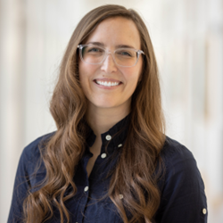 | Elizabeth Wood, Ph.D. Oregon Health & Science University Dr. Wood is a postdoctoral scholar in the Department of Psychiatry at Oregon Health & Science University. Dr. Wood is a developmental psychobiologist with a research focus on identifying the prenatal origins of health and disease, including the long-term effects of early life environmental exposure on birthing parent and offspring health. Dr. Wood's BIRCWH project aims to assess the intrauterine environment's programming role on childhood cardiometabolic health. |
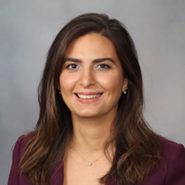 | Burcu Zeydan, M.D. Mayo Clinic Dr. Zeydan is an assistant professor of neurology at the Mayo Clinic. Dr. Zeydan received her M.D. and completed her neurology residency at Istanbul University. She then completed her clinical multiple sclerosis (MS) fellowship at the Mayo Clinic. Dr. Zeydan focuses on the investigation of imaging biomarkers of MS, targeting different phases of MS. She works on advanced magnetic resonance imaging (MRI) techniques and molecular positron emission tomography (PET) to understand the underlying mechanisms in MS, particularly progressive MS, at a molecular level. She also focuses on sex and racial/ethnic differences in the MS disease course and the impact of aging, sex hormones, and reproductive milestones, such as pregnancy and menopause, on MS prognosis. |
Page Last Updated on

